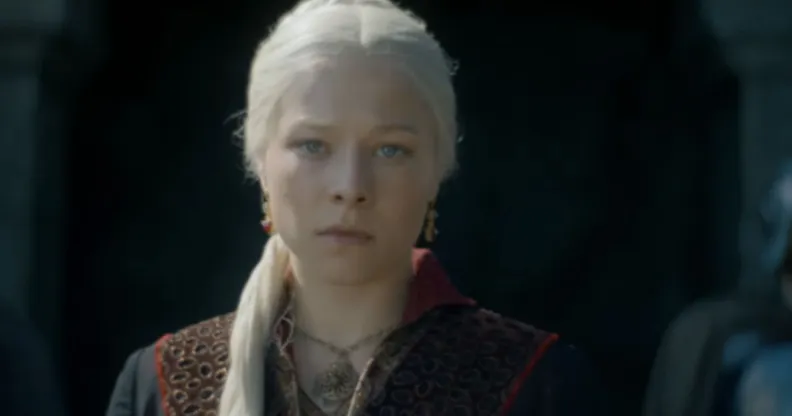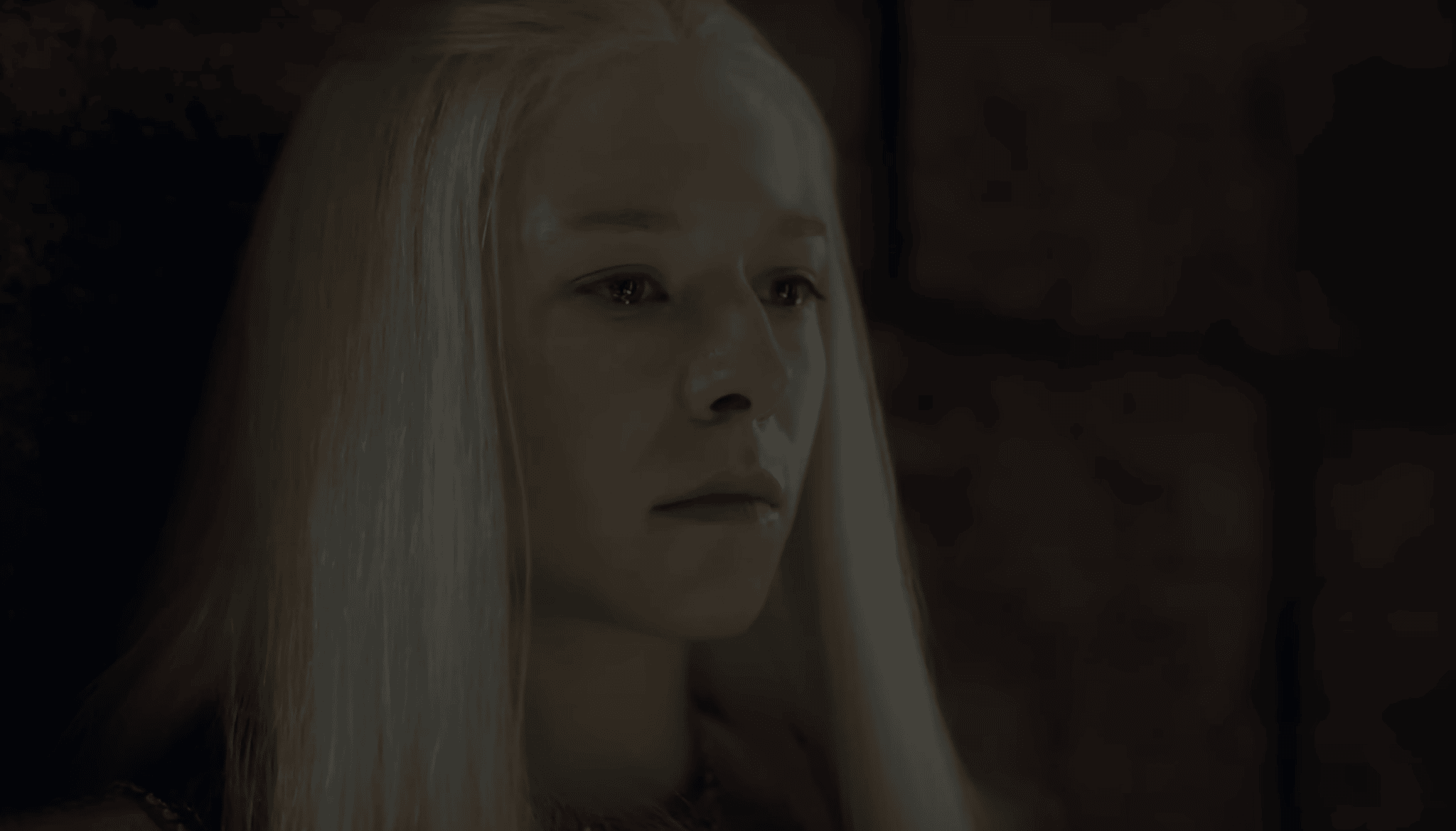Non-binary House of the Dragon star reflects on playing women: ‘I’m really good at it’

Emma D’Arcy as Rhaenyra in House of the Dragon. (Youtube/HBO Youtube)
House of the Dragon star Emma D’Arcy opened up about the importance of non-binary representation, and why they’re comfortable playing women.
D’Arcy plays Rhaenyra Targaryen in House of the Dragon, the Game of Thrones prequel.
The actor is non-binary, but told The Independent that their gender doesn’t limit their potential.
“I really like playing women and I’m really good at it,” Emma D’Arcy said.
“My worst-case scenario is that suddenly people tell me what I can and can’t play.
“I have all the tools necessary to play women. I lived as one for a long time; people still think I am one. It’s like, ‘Let me do my job; I’m really good at it.’”

Emma D’Arcy as Rhaenyra Targaryen in House of the Dragon. (GameOfThrones/ YouTube)
They also opened up about their love of acting and why non-binary representation is so important.
“I want to live within other people and exorcise bits of myself,” they said.
“It’s complicated! In terms of queerness, the only good reason for being out as a non-binary person, publicly and professionally, is that I hope it will let younger people who may feel similar know that there is room in this industry for them.
“Because there was definitely a point where I thought, ‘Oh no, this is not going to work. I definitely need to have long hair and make-up to do this job.’ And that’s just not true.”

A younger Rhaenyra Targaryen (Milly Alcock) in House of the Dragon. (HBO)
D’Arcy said the role of Rhaenyra spoke to them because of her desire to inhabit a male space within Westeros’ society; her desire for a life that her gender bars her from.
“It was exciting to see a young woman on the page who had such a keen awareness of how power structures were operating, and could see that someone, ie Daemon, was able to exist via a completely different set of rules than those afforded to her,” they say.
“That desire to seek a kind of masculine freedom and take up space, in the way that she perceives men do, really spoke to me. I felt that as a kid.”
They continue: “I had this sort of tangible awareness of what it might look like were I a boy. So, I think I had that same experience.”
How did this story make you feel?

